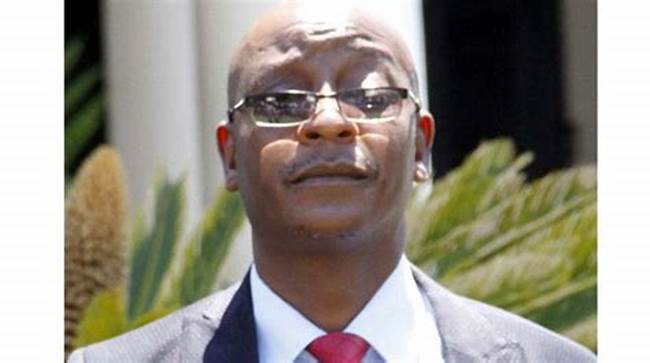Staff Reporter
Zimbabwe is intensifying its campaign for the removal of sanctions, with high-level officials set to present their case at the upcoming United Nations International Conference on Sanctions, Business, and Human Rights.
Scheduled for November 21-22 in Geneva, Switzerland. The conference will be hosted by Professor Alena Douhan, the UN Special Rapporteur on the negative impact of unilateral coercive measures on human rights.
The event is expected to bring together global leaders and experts to discuss the impact of sanctions on member states and explore guiding principles linking embargoes, business, and human rights.
Zimbabwe’s call for lifting of sanctions primarily targets the Zimbabwe Democracy and Economic Recovery Act (ZDERA), a US law enacted in 2001 that has been a cornerstone of Washington’s economic restrictions on Zimbabwe. Enforced under former President George W. Bush, ZDERA has limited Zimbabwe’s access to international finance and hindered economic growth, affecting essential services for citizens. Leading the Zimbabwean delegation, Justice, Legal and Parliamentary Affairs Minister Ziyambi Ziyambi underscored the human toll of these sanctions.
“The International Conference on Sanctions, Business, and Human Rights provides a global forum to discuss the impact of unilateral coercive measures on the human rights of those not intended to be targeted. While often labelled as ‘targeted,’ these sanctions have rippled through Zimbabwe’s financial sector and impacted everyday transactions, such as purchasing essential goods and medicines,” said Ziyambi.
Minister Ziyambi highlighted how pervasive sanctions-related scrutiny has disrupted even routine transactions for Zimbabweans, resulting in widespread shortages and hardships.
“Zimbabwe might otherwise have developed schools or built essential infrastructure, the constraints imposed by sanctions have held back progress and worsened daily life for ordinary citizens. These critical areas like infrastructure, healthcare, and education have suffered under the embargo, as funds that could have gone towards development projects were instead restricted by sanctions,” he explained.
Minister Ziyambi also critiqued the long-term effectiveness of sanctions, citing examples like Cuba, where sanctions have failed to enact regime change.
“Historically, sanctions have shown that they cannot be a vehicle to achieve regime change. Instead, they violate basic rights outlined in the UN Charter and the Universal Declaration of Human Rights, including access to food, potable water, and health,” he said.
Professor Douhan, the conference’s keynote speaker, conducted a fact-finding mission to Zimbabwe in 2021. Her findings highlighted that sanctions had negatively impacted ordinary citizens more than the targeted individuals.
Furthermore, Ziyambi echoed this, stating, “Her extensive research has shown that sanctions often deny fundamental rights to the general public, rather than affecting only the political elite.”
Zimbabwe’s participation in this UN forum is expected to underscore the country’s call for the immediate and unconditional lifting of sanctions. By drawing attention to the unintended human costs of economic restrictions, Zimbabwe hopes to catalyze a broader dialogue on how international sanctions policies can better respect human rights while encouraging constructive diplomacy.
The Geneva conference aims to foster discussions on sanctions’ broad consequences, and Professor Douhan is expected to advocate for a human rights-based approach to international relations, arguing that punitive measures should be reconsidered in favor of frameworks that prioritize human rights.




